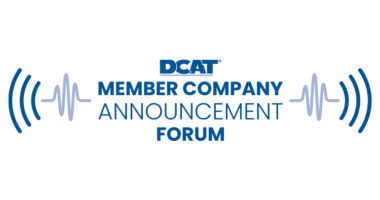What’s Next for Pfizer?
Pfizer announced last week that it will reorganize into three businesses, an Innovative Medicines business, an Established Medicines unit, and a Consumer Healthcare business. So what is the restructuring all about?
This is the second reorganization by the company in four years, which is now organized into two main groups: Innovative Health and Essential Health, which includes the company’s legacy products and generic products. Another reorganization may portend of future moves, including for the company’s consumer healthcare business. DCAT Value Chain Insights takes an inside look.
Inside Pfizer’s recent reorganization
Pfizer said that the reorganization of restructuring into three businesses; an Innovative Medicines business, an Established Medicines business, and a Consumer Healthcare business, will be effective at the beginning of the company’s 2019 fiscal year and positions the company as it transitions to higher growth expectations post 2020.
 |
| Ian Read Chairman and CEO Pfizer |
“This new structure represents a natural evolution of these businesses given the ongoing strength of our in-market products and our late-stage pipeline and the expected significant reduction in the impact of patent protection losses post-2020 following the loss of exclusivity for Lyrica in the US, which is expected to occur in or after December 2018,” said Ian Read, Pfizer Chairman and Chief Executive Officer in a July 11, 2018 company statement. “As we transition to a period post-2020 where we expect a higher and more sustained revenue growth profile, we see this new structure better positioning each business to achieve its growth potential.”
In terms of revenue, based on 2017 actual results, the Innovative Medicines business (including Consumer Healthcare) is expected to comprise approximately three-quarters of Pfizer’s revenues, and the Established Medicines business is expected to comprise approximately one quarter, according to information from Pfizer.
The Innovative Medicines business will include the current Pfizer Innovative Health business units as well as biosimilars and a new hospital business unit for anti-infectives and sterile injectables. Pfizer will also incorporate its biosimilar portfolio into its Oncology and Inflammation & Immunology business units.
The Established Medicines business will include off-patent branded drugs and generics and operate with substantial autonomy within Pfizer, the company said. The business will include the majority of Pfizer’s off-patent solid oral dose legacy brands, including Lyrica (pregabalin), a drug to treat nerve pain, Lipitor (atorvastatin), an anti-cholesterol drug, Norvasc (amlodipine), an antihypertensive drug, and Viagra (sildenafil), a drug to treat erectile dysfunction, and certain generic drugs. This business will operate in all regions of the world. The business will have distinct and fully dedicated manufacturing, marketing, regulatory, and with some exceptions, enabling functions, which will enhance its position to operate as a stand-alone business within Pfizer. Following the impact of the expected loss of exclusivity of Lyrica in the US in or after December 2018, Pfizer said the Established Medicines business has the potential to generate sustainable modest revenue growth.
The Consumer Healthcare business will include all of Pfizer’s over-the-counter medicines. It will continue to operate relatively autonomously with dedicated manufacturing and regulatory capabilities. Pfizer said it continues to evaluate strategic alternatives for this business and expects to make a decision in 2018.
What the restructuring may mean
Pfizer is currently organized into two main business: Innovative Health, which as the name implies includes the company’s innovator-based drugs, vaccines, and consumer healthcare segments (see Table 1) and its Essential Health segment, which includes its legacy products (i.e., products late in the product life-cycle, generics, and biosimilars (see Table 2).
| Table I: Pfizer’s Innovative Health Segment | |
| Therapeutic Area | Description |
| Internal Medicines | Includes innovative brands from two therapeutic areas, Cardiovascular Metabolic and Neuroscience and Pain as well as regional brands |
| Vaccines | Includes innovative vaccine brands across all ages—infants, adolescents and adults—in pneumococcal disease, meningitis and tick-borne encephalitis, with a focus on healthcare-acquired infections and maternal health |
| Oncology | Includes innovative oncology brands of biologics, small molecules and immunotherapies across a wide range of cancers |
| Inflammation and Immunology | Includes innovative brands for chronic immune and inflammatory diseases |
| Rare Diseases | Includes innovative brands for a number of rare diseases, including hematology, neuroscience, and inherited metabolic disorders |
| Consumer Healthcare | Includes over-the-counter (OTC) brands with a focus on dietary supplements, pain management, gastrointestinal and respiratory and personal care. According to Euromonitor International’s retail sales data, in 2017, Pfizer’s Consumer Healthcare business was the fifth-largest branded multi-national, OTC consumer healthcare business in the world and produced two of the ten largest selling consumer healthcare brands (Centrum and Advil) in the world |
Source: Pfizer and US Securities and Exchange Commission filings
| Table II: Pfizer’s Essential Health Segment | |
| Product Category | Description |
| Global Brands—Legacy Established Products | Includes products that have lost patent protection (excluding Sterile Injectable Pharmaceuticals and Products that Will Go off Patent (i.e.,Peri-loss of exclusivity [LOE] Products). |
| Global Brands— Products that Will Go off Patent (i.e.,Peri-loss of exclusivity [LOE] Products | Includes products that have recently lost or are anticipated to soon lose patent protection |
| Sterile Injectable Pharmaceuticals | Includes generic injectables and proprietary specialty injectables (excluding Peri-LOE Products). |
| Biosimilars | Includes recombinant and monoclonal antibodies, primarily in inflammation, oncology and supportive care. |
| Pfizer CentreOne | Includes revenues from Pfizer’s contract manufacturing and active pharmaceutical ingredient sales operation, including sterile injectables contract manufacturing, and revenues related to its manufacturing and supply agreements, including with the former Pfizer animal-health business, Zoetis |
Source: Pfizer and US Securities and Exchange Commission filings
Part of Pfizer’s near-term revenues outlook is dealing with the patent expiration of Lyrica (pregabalin), a drug to treat nerve pain, whose US patents expire in 2018. Lyrica, which posted 2017 revenues of $4.5 billion, was one of seven blockbusters (defined as products with sales of $1 billion or more) for Pfizer in 2017 with these seven products accounting for 66% of Pfizer’s Innovative Health revenues in 2017. In addition to Lyrica, these other products were: Prevnar 13/Prevenar 13 pneumococcal 13-valent conjugate vaccine), a pneumococcal vaccine and a conjugate vaccine used to protect infants, young children, and adults against disease caused by the bacterium Streptococcus pneumoniae (the pneumococcus); Ibrance (palbociclib) for treating certain types of breast cancer; Eliquis (apixaban), an anticoagulant for the treatment of venous thromboembolic events; Enbrel (etanercept), a drug to treat autoimmune diseases; Xeljanz (tofacitinib), a drug to treat rheumatoid arthritis, psoriatic arthritis, and ulcerative colitis; and Sutent (sunitinib), an anti-cancer drug.
The placement of Pfizer’s biosimilars business, which the company enhanced through its $17-billion acquisition of Hospira in 2015, to its Innovative Health business in the new reorganization, is consistent with Pfizer’s stated research and development (R&D) priorities. Pfizer’s R&D priorities include biosimilars; inflammation and immunology; metabolic disease and cardiovascular risks; oncology; rare diseases; and vaccines, according to the company’s 2017 annual filing with the US Securities and Exchange Commission. As of January 30, 2018, Pfizer had 87 projects in various stages of R&D: 30 products in Phase 1; 18 in Phase II; 29 in Phase III; and 10 in registration under regulatory review.
In January 2018, Pfizer announced that it was ending its internal neuroscience discovery and early-development efforts to re-allocate funding to other areas where the company says it has stronger scientific leadership. The company said it plans to create a dedicated neuroscience venture fund to support continued efforts to advance the field. The development of tanezumab, a pain drug that the company is developing with Eli Lilly and Company, and potential treatments for rare neuromuscular disorders is not impacted by this decision.
The spinout of its Consumer Healthcare business from its Innovative Health Segment into a stand-alone business is also consistent with Pfizer’s previously announced plans to evaluate strategic alternatives for the business. In October 2017, Pfizer announced that it was reviewing strategic alternatives for its Consumer Healthcare business. It said that a range of options will be considered, including a full or partial separation of the Consumer Healthcare business from Pfizer through a spinoff, sale or other transaction, or that it ultimately determines to retain the business. The company said that it expects that any decision regarding strategic alternatives for Consumer Healthcare would be made during 2018.
Another factor to consider in Pfizer’s reorganization is whether the establishment of a Established Medicines business unit, which includes products late in their product lifecycle and soon to lose patent protection or products that have lost patent protection, may portend the eventual separation of that business. In addition to its biosimilars business, which is now part of the company’s Essential Health segment, Pfizer is moving its sterile injectables business, also gained in its acquisition of Hospira, into the Innovative Medicines segment.
Under the new reorganization, Pfizer said the Established Medicines Unit will operate as a stand-alone entity with dedicated manufacturing, marketing, regulatory, and other enabling functions. In 2017, Pfizer recorded sales of $1 billion or more for only one product in its Essential Health business: Lipitor (atorvastatin), an anti-cholesterol drug, which posted 2017 revenues of $1.9 billion and accounted for 9% of the Essential Health’s revenues in 2017. Pfizer decided not to separate its Essential Health business several years ago, and the question going forward is whether Pfizer will follow a similar path for its Established Medicines business unit or may decide on strategic alternatives for the business.
Also a question for Pfizer is how it will pursue future mergers and acquisitions (M&A). Pfizer has recently pursued a strategy of smaller scale M&A following two mega mergers that did not materialize. In April 2016, Pfizer and Allergan called off their proposed $160-billion merger citing the US Department of Treasury’s issuance of temporary and proposed regulations to further reduce the benefits of and limit the number of corporate inversions, a move that the companies said created an adverse tax law change. Pfizer’s proposed $160 billion merger with the Dublin, Ireland-based Allergan, which the companies announced in November 2015, would have been the largest merger in the history of the pharmaceutical industry. Pfizer’s decision to pursue Allergan followed its interest in acquiring AstraZeneca in 2014, another mega merger for Pfizer that did not come to fruition. Pfizer announced in late May 2014 that it would not make a formal offer to acquire AstraZeneca following AstraZeneca’s decision to reject Pfizer’s non-binding $118-billion proposal. Pfizer’s interest in acquiring AstraZeneca was to build its pipeline and commercial portfolio, but it also had a financial component in establishing a new UK-incorporated holding company of the proposed combined company. The proposal for the deal brought to the fore the issue of corporate inversion, a practice by which a US-based multinational company restructures so that the US parent is replaced by a foreign corporation as a means to achieve a lower tax rate.





